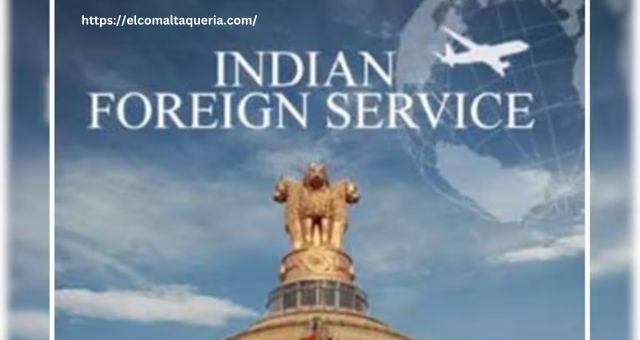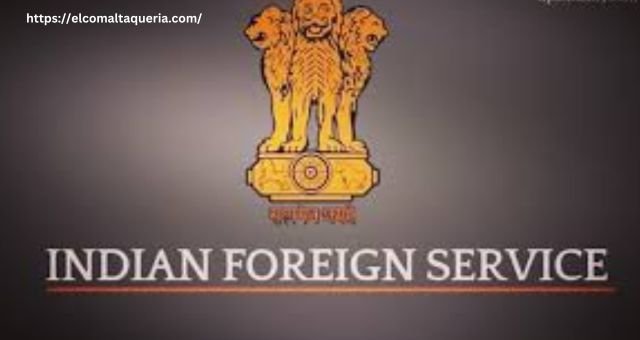
Indian Foreign Service: A Detailed Overview
The Indian Foreign Service is an esteemed and prestigious branch of the Indian civil services responsible for managing India’s external affairs and diplomatic relations. Through this article, you will learn and comprehend about the Indian Foreign Service in detail. Therefore, reading this article till the end will be filled with information and facts. Let’s start this article forward and continue reading.
What is the Indian Foreign Service?
It is a civil service under all India services. Further, it is the diplomatic service and a central civil service of the government of India that functions under the Ministry of External Affairs. Evidently, the Foreign Secretary is the head of this service. Currently, Vinay Mohan Kwatra is the Foreign Secretary and essentially the 34th. The service comprising civil servants is assigned to managing the foreign relations of India. the service was formed on 9 October 1946, 77 years ago. The IFS headquarters is in South Block, New Delhi, India. The IFS consists of career diplomats serving more than 160 Indian diplomatic missions and international organisations across the world.
IFS officers represent India in its embassies, high commissions, consulates, and permanent mission to international organisations globally. Plus, IFS led Regional Passport Offices all over the country and grasped spots in numerous ministries on commission. Moreover, the career path to becoming an IFS officer involves a tough selection process through a civil services examination conducted by the Union Public Services Commissions (UPSC).
Let’s go back to the history
The board of directors of the East India company passed a resolution at Calcutta on 13 September 1783. In order to create that reduce the pressure on the Warren Hastings administration and lead in secret and political business. The Indian foreign department led business with foreign European powers. Since the beginning, a distinction was maintained between the foreign and political functions of the foreign department. Furthermore, in 1843, the governor-general of India, Edward Law carried out administrative and organised the secretariat of the government into four departments, such as foreign, home, finance and military. Each department was headed by a secretary-level officer.
In the Government of India Act 1935, a separate external affairs department was set up which was headed directly by the governor-general. The idea of establishing a separate department mainly for external affairs is due to a note written by Lieutenant General TJ Hutton. He was the secretary of the planning and development department. After that, in September 1946, the Indian government made the Indian foreign service for India’s diplomatic, commercial and consular representation. The new minister of external affairs and Commonwealth relations was set up in 1947. Recruitment to this lead service through the UPSC exam and the first batch was recruited in 1948.
Roles and Responsibilities of Indian Foreign Service
Represent India in bilateral and multilateral discussions.
Manage passport, visa, and other consular services for Indian citizens and foreign nationals.
Promote and safeguard India’s trade and economic interests in other countries.
Participate in the formulation and implementation of foreign policy strategies.
Promote trade and investment between India and other countries.
Facilitate business opportunities for Indian companies abroad.
Attract foreign direct investment to India.
Communicate India’s policies and positions to foreign governments and the international media.
Manage India’s image and reputation internationally.
Represent India in international organizations such as the United Nations, World Trade Organization, and others.
Participate in global forums, conferences, and summits.
What is the selection procedure for the Indian Foreign Service?
For the recruitment, IFS officers are recruited by the government of India on the recommendation of the UPSC. The first batch was recruited based on the civil service examination conducted by the UPSC in 1948. Indeed, this exam is still used to select new foreign service officers. Formerly in 1948, some of the officers were appointed directly by the prime minister and included former native rulers of India. At the current time, new recruits to the Indian Foreign Service are trained at Sushma Swaraj Foreign Service Institute. In a few years, the number of candidates for the Indian Foreign Service selected between 25 and 30 annually.
Training
After selecting to the Indian foreign service, the new entrants undergo a multi-faceted and widespread training programme proposed to give them diplomatic knowledge, qualities and skills. The applicants go through a probationary period. Moreover, the training period starts at Lal Bahadur Shastri National Academy of Administration in Mussoorie. Once the contender undergoes for fifteen weeks, the probationers join the Sushma Swaraj Foreign Service Institute, New Delhi for more rigorous training in a cloud of subjects significant to diplomacy, including international relations theory, military diplomacy, trade, India’s foreign policy, history, administration and many more. For more vigorous training, the contenders go to tours both India and Indian mission abroad with different bodies and defence such as Army, Navy, Air Force, CAPF. Overall, the training program lasts for 12 months. After the completion of the training program, an officer is allotted a required foreign language training.
What are the ranks of an IFS officer?
Ranks of an IFS Officers are as follows:
Third Secretary (entry level)
Second Secretary (promotion upon being confirmed in service)
First Secretary.
Counsellor.
Minister.
Deputy Chief of Mission/Deputy High Commissioner/Deputy Permanent Representative.
Ambassador/High Commissioner/Permanent Representative.

Final words
Indeed, the IFS is a part of the central services of the country. IFS officers safeguard the India’s concerns and affairs in the country of his delegation. To crack the UPSC exam, applicants have to do work hard because the selection of applicants per year is 25 to 30 annually. This pushes us to the end of this blog and if you found this article beneficial, leave a comment. Toddles!













